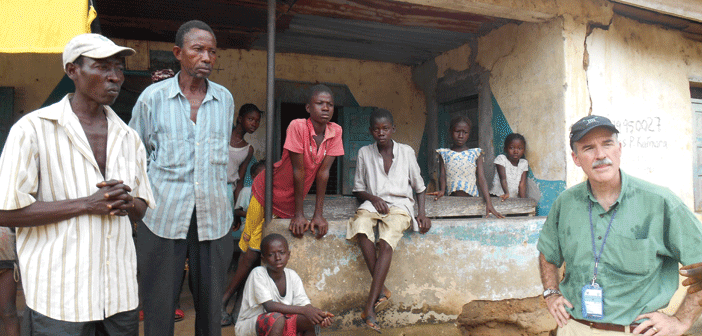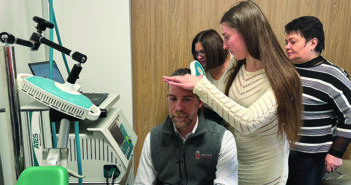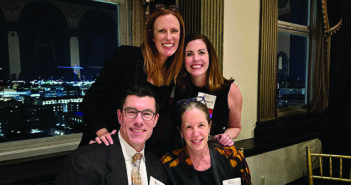An alum reports on his work fighting Ebola.
Peter Kilmarx MD’90 directs the country office for the US Centers for Disease Control and Prevention (CDC) in Zimbabwe. He was deployed to Sierra Leone to serve as the CDC Ebola Response Team Leader in September and October 2014. He shared his experiences with Brown Medicine before returning to West Africa for another month in January.
As team leader, I was overseeing all CDC activities in Sierra Leone. When I first arrived, we had 33 CDC staff focused on surveillance and epidemiology, infection prevention and control, and health communication. We also had a team supporting screening at the airport to prevent export of cases and a team running an Ebola diagnostic laboratory.
All along, the greatest challenge has been coordination and management. I spent a lot of time working on these with the leadership of other national and international organizations. We were able to put some critical changes in place, including involving the Sierra Leone Army where their capacity in logistics and command and control was needed.
We analyzed the surveillance data and found that most of the transmission was actually from corpses and not from live patients. One of our staff took a lead role in establishing a national policy on “Safe, Dignified Medical Burials,” as well as developing standard operating procedures for burial teams. We also established and helped implement a national policy on “Interim Home Protection and Support” to prevent household transmission and provide oral rehydration solution for patients suffering at home while facilities for safe transport and care were inadequate to meet the demand.
We had fantastic support. I was able to add 30 new CDC staff while I was there to fill critical new functions and to expand to newly affected districts. We also had plentiful funding and flexibility. For example, we quickly procured 28 motorcycles to establish a national laboratory specimen transport system.
It was among the most intense and most satisfying professional experiences of my life. While I was there the infection rate was doubling every 30 days. I worked until after midnight every night and awoke at 5 a.m. most mornings, energized to meet the challenges of the new day. I was very proud of our CDC staff, especially the younger epidemiology intelligence service officers I visited, working shoulder to shoulder with local staff in the most highly affected districts. I shed tears one day the last week I was there, for the suffering of the people, but also for the extraordinary opportunity to serve. The exponential increase in cases has stopped. Going back, I’m optimistic that the numbers of cases will soon finally start to come down.




